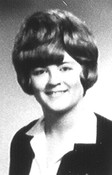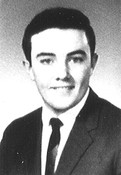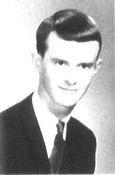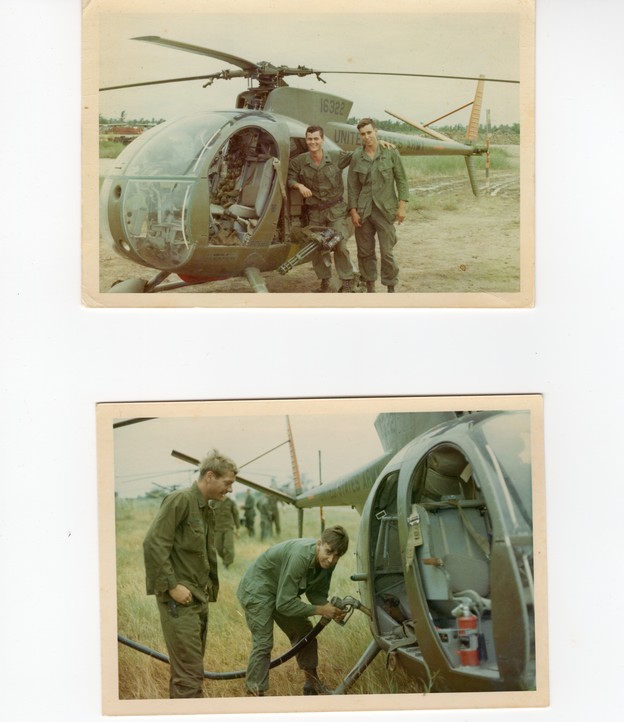VIETNAM WAR HELICOPTER PILOTS REUNITE AFTER 44 YEARS
It could have been any reunion anywhere in the country of seven longtime friends who hadn’t been together as a group in 44 years. They told stories about the old days, interrupted each other mid-sentence with different recollections of the memories being shared, laughed, shared a tear recalling certain decisive moments carved into memory, and told one another to speak up because they couldn’t hear very well anymore.
Pictured from left is Don Ericksen, Bob Buffington, Al Goodspeed, Dave Mitchell, Phil Lange, Joe Byrd and Bill Pond.
It could have been any high school reunion, with old friends talking about life way back when Nixon was president and the “summer of love” had just ended and a man walked on the moon.
Except these friends were also members of a certain brotherhood. And their reunion at the Omni Hilton Head Oceanfront Resort last month was to reflect on the time they shared as helicopter pilots in the Vietnam War from mid-1968 to mid-1970. Past and present rolled into one emotional jumble of gratitude and bonding over the events that brought them together when they were 20 to 26 years old.
On the first day of the three-day gathering, seven pilots met in a conference room for several hours to tell their war stories — the day, the time, the weather conditions, the conflict, who they were with and their feelings about what they experienced. All were members of the 7th of the 1st Air Cavalry squadron (three more pilots would arrive at the reunion later that Friday afternoon), nicknamed the Black Hawks, who were based at an Army airfield at Vinh Long in southern Vietnam about an hour’s flight south of Saigon. All flew between 800-1,500 helicopter hours during their military time in Southeast Asia.
Inline Image Not Displayed
“We were 24/7 together, and no matter what happened the day before, you woke up at 5 and there’s a board on the hooch, where we lived, and it said where you’re going and who’s flying with who, and you’re going on the next mission,” said Al Goodspeed, an Atlanta resident and former first lieutenant and captain who was shot down three times and earned three Purple Hearts. “Whatever happened yesterday, if Dean got killed or Gary got shot in the head, that’s gone. You don’t have time to grieve over it, think over it. You’ve got your next mission and you go out there … and I think that’s why a lot of people have trouble when they get home.”
Each day began like the day before in the delta on the northern split of the Mekong River. The mission commander flew in a Huey helicopter with a copilot at 500 feet. At 1,500 feet, flying in a big, wide circle, two heavily armed Cobra attack helicopters watched and waited. About 10 feet above the rice paddies were a lead and a wing scout pilot aboard Loach copters, hunting and locating the enemy. If the scout Loaches were shot at, which happened regularly, they would drop colored smoke to mark the Vietcong’s location, then fly off while the Cobra gunships fired rockets. Four other Hueys were on standby for each of the day’s three two-hour missions, and would drop off South Vietnamese ground soldiers near the target site if necessary.
“The guns are hitting the tree line beside us as we drop in, and I was in this state of shock … and you could see these muzzle flashes over in the woods and I looked back, and in my trance, this ship in front of me started to burn off ammunition and apparently a round of cooked-off ammunition comes flying back and flicks against my windshield, ping, you know, like this, and that snapped me back to attention,” said Dave Mitchell of Bluffton, the reunion’s organizer and a warrant officer during the Vietnam War who was shot down once in his 18 months of action. “Off to my right, Bob (Towe, a warrant officer and later chief warrant officer who did not attend the reunion) is standing, walking like a peg-legged man in a circle like this and he has a cut over one eye and it’s like, he was like just a dummy.”
“He was a dummy,” Texan Joe Byrd, a military lifer and first lieutenant during the Vietnam War, joked to the group.
Mitchell and the rest of his crewman dragged Towe into the helicopter “and then we just lifted over the trees and got the hell away from there.”
One after another, story after story, the former pilots spoke in somber, almost monotone voices. Nothing but the facts for this group of Vietnam veterans.
“A week or so later I wake up, I was sleeping on a down day … I get up and they’re all talking, the major and the first sergeant have left in the middle of the night under armed guards and straight jackets and the two of them were both having nervous breakdowns,” Mitchell said, recalling one incident. “They were out in the middle of the night … on the main active runway, in their underwear, drunk as lords, on squadron frequency, yelling, taunting and teasing each other so everybody is listening to this.”
Inline Image Not Displayed
The men all used words such as “fear,” “confusion,” “anxiety,” “shock,” “kill or be killed,” “comradery,” “brotherhood” and “boredom” to describe their time serving in the Vietnam War. They also agreed that, whether they knew it or not at the time, they had nightly therapy sessions in their hooch, sharing that day’s events, laughing as young guys do and letting out pent-up feelings, if only for an hour or two.
“A lot of (the skirmishes) I can’t remember anymore because we just got into it almost every day … but the one we call the 502nd North Vietnamese Army Battalion is one I still remember virtually every night because it comes back and haunts me,” said Bob Buffington from Georgia, a warrant officer who later became a police detective in Atlanta as a civilian.
“We started moving in closer and blowing some grass away and found some bloody bandages and even some weapons leaning up against the trees,” Buffington said. “A colonel got hit and they brought in a new command-in-control guy, and by this time they knew we were there and we knew they were there and so the shooting was pretty rampant and we had taken a couple of hits … so I moved out into a wide open field with some palm trees and some other stuff between them and the bunker line where the bad guys were and I popped smoke (to mark the enemy’s position). And we brought in a platoon, but they were on the wrong frequency (and couldn’t receive communication about the impending disaster that lay ahead). Their lead element was already within 20 or 30 yards of the bunker line and everything just opened up and they shot them to pieces … I mean they were just being ripped apart. They started putting those machine guns together … some kid had gotten a belly wound and they said he wasn’t going to make it. I went in to try to pick the kid up (in the copter) and they had him tied between two M16s and a poncho and just as soon as I got into position and started lowering down so they could put him in, the whole world opened up and they killed everybody and we were shot in pieces. That’s when you guys got overrun that night, and then the bad guys went into the jungle (in Cambodia).”
These pilots’ lifelong relationships have lasted longer than most of their marriages. The men still experience sleepless nights and adrenaline rushes when an unexpected noise startles them or certain smells trigger graphic memories. It took most of them years to come to terms with their war experiences, especially after they say most of the nation turned their backs on them upon their return home after the war. The vets were angry and disillusioned and eventually went their separate ways.
But they have each other now, as they did 44 years ago.
“I just want to say that you couldn’t be with a greater bunch of professionals doing the things that we did. Most people would never believe some of the things we did. Everybody had their job to do: the helicopter pilots, the infantrymen, the Air Force guys,” said Don Erickson of Long Island, N.Y., who was a first lieutenant during the war. “The pilots I flew with were the best in the world at that time and congratulations to all you guys, including me. It was great to be in a great unit; we really did our jobs the way it was supposed to be done.”
Bill Pond, a first lieutenant and later platoon leader who was shot down four times during the war, said “it was very, very emotional” seeing his brothers at the hotel after so many years apart. “It was just wonderful.”














 .
.